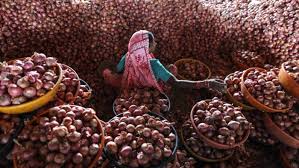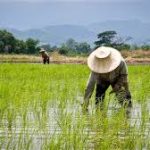As India approaches the initial phase of the forthcoming general elections, the spotlight is on the prices of essential food items. In anticipation of the polls, the Indian government has implemented measures to maintain affordable food prices nationwide. At least five crucial commodities are now subject to various prohibitions, restrictions, mandatory disclosure provisions, or other regulations preceding the election season.
The first phase of the 2024 Lok Sabha elections is set to commence on April 19, 2024.
Food inflation rose to 8.66 per cent in February from the previous month’s 8.3 per cent, while India’s retail inflation saw a slight decrease to 5.09 per cent compared to January’s 5.10 per cent.
However, the Food and Agriculture Organization (FAO) of the United Nations’ food price index indicates a decline in global prices, offering hope for a reduction in food inflation in the near future. The index stood at 118.3 points in March 2024, marking a 7.7 per cent decrease from the previous year. Although the index rose by 1.3 points (1.1 per cent) in March compared to February, driven by increases in the price indices for vegetable oils, dairy products, and meat, there was a decline in the prices of sugar and cereals.
The contentious issue of onion prices has resurfaced. On March 22, 2024, the Government of India extended its ban on onion exports indefinitely, just days before the ban was set to expire on March 31. The initial export ban, imposed on December 8, 2023, aimed to address a domestic supply shortage, ensuring the staple vegetable’s availability to domestic consumers at reasonable prices. Despite expectations that the ban would be lifted after March 31, its extension came as a surprise to onion farmers and traders, leading to mounting frustrations over losses incurred.
The ban on wheat exports, in place since May 2022, remains enforced. On March 29, 2024, the government mandated that all traders, retailers, and processors declare their wheat stock position, starting from April 1, with subsequent declarations required every Friday until further notice, to prevent hoarding and price spikes.
Sugar, categorized as restricted since October 31, 2022, continues to face export bans, now prolonged indefinitely. Despite an expected surplus in sugar production, much of it may be diverted for ethanol production, with experts suggesting that the export ban is unlikely to be lifted until after the elections.
Similarly, the ban on the export of non-basmati white rice, initiated in July 2023, persists, prioritizing domestic consumers’ needs amid concerns about rice production. Additionally, the government is aiding friendly nations with their food security needs by permitting exports to these countries.
In a recent development, the government mandated that pulses importers, millers, stockists, traders, and processors disclose their stocks of all pulses from April 15 onwards to prevent hoarding. This measure aims to ensure transparency in the market and prevent price manipulation.
As India navigates through these measures amidst the election season, the focus remains on stabilizing food prices and ensuring adequate supply to consumers nationwide.





